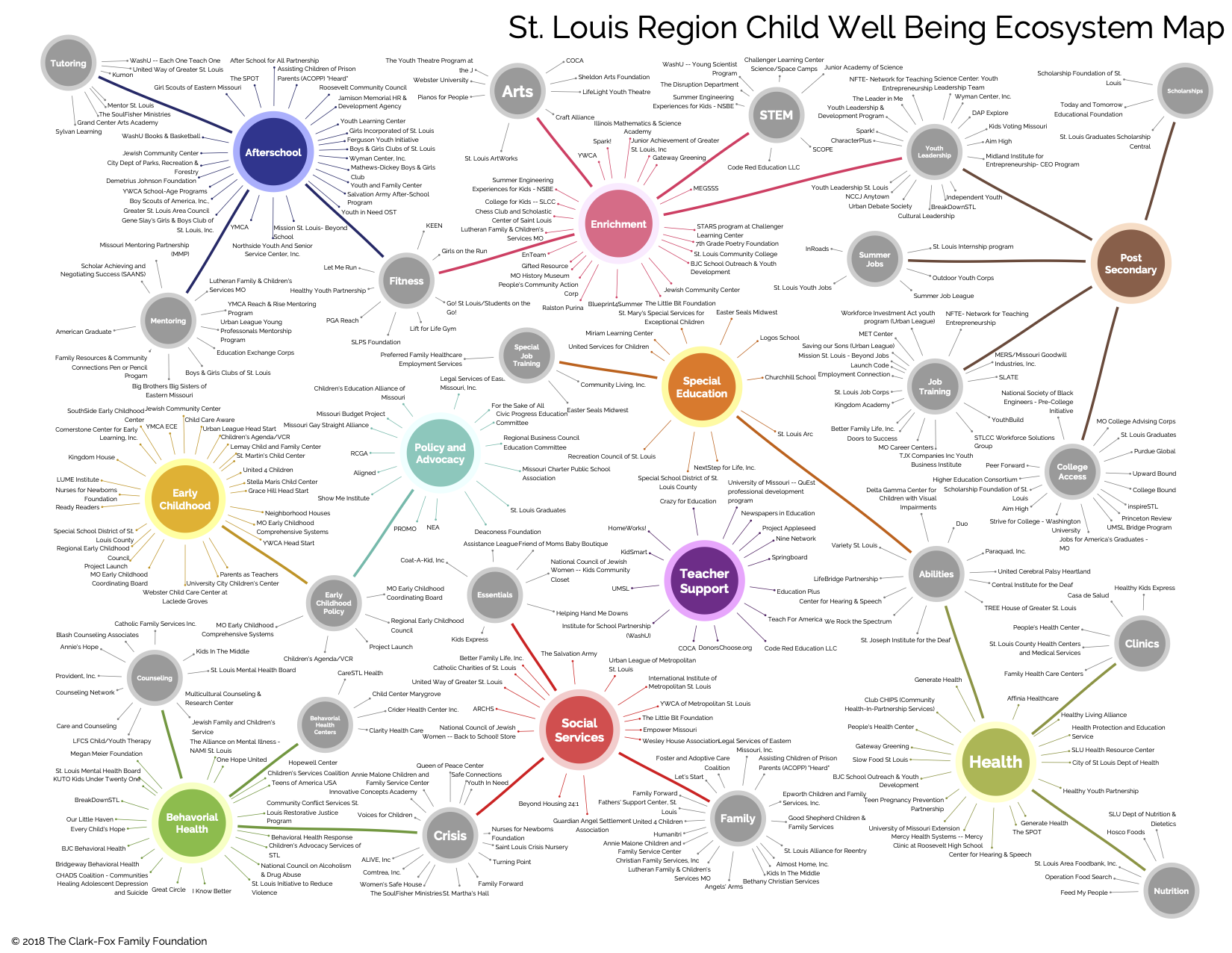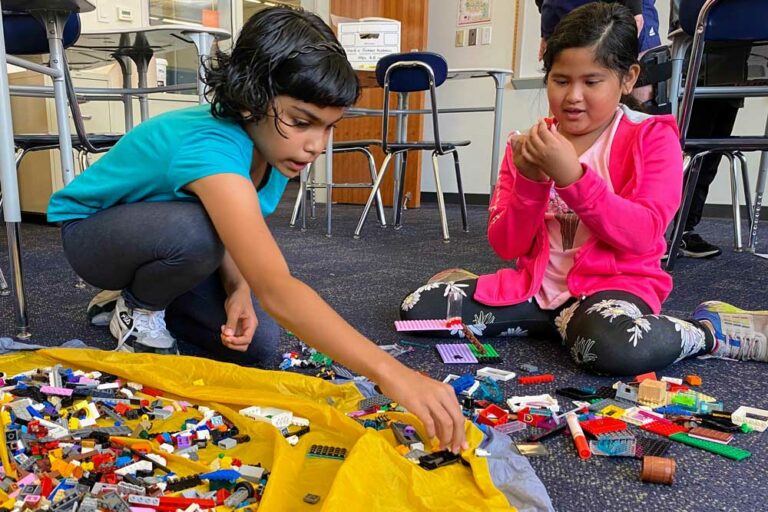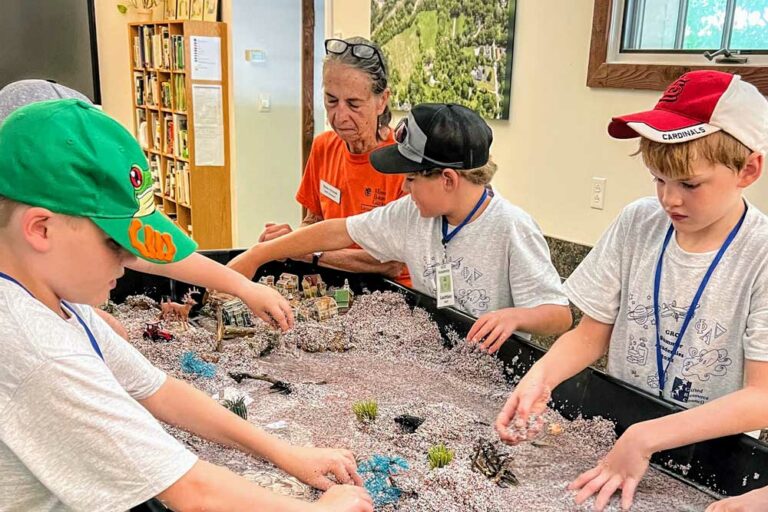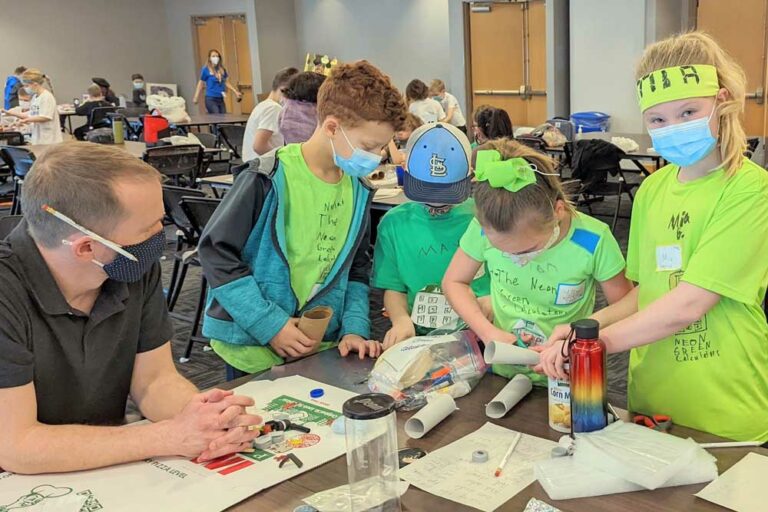FOR PARENTS
Parents of Gifted Children
Navigating the joys and challenges of raising a gifted child can be difficult, and most of us could use some extra support. GRC offers periodic sessions led by professionals in education and/or the gifted community. We also post other opportunities and resources for parents as well.
Parenting classes are FREE this year thanks to a generous donor! They are from 11:15 – 12:45 during Learning Lab classes. Registration is not required, but helps give us an idea of how many attendees there will be: https://forms.gle/
February 8 – Developing and Increasing Tolerance in Gifted Kids – Sometimes it seems our kiddos aren’t tolerant of anything – their peers, their siblings, us! What can we do about it? – Agnes Meyo, Psy.D., Clinical psychologist, private practice
February 15 – Strengths-Based Parenting -It’s easy to focus on what’s going wrong, but learn about how to focus on what’s going RIGHT and build from there! – Aisha Hasan, author of My Child is Gifted. . . Now What?
February 22 – Childhood Anxiety – Dr. Gilbert is running a study about childhood anxiety and has the latest research and tips. – Dr. Kristen Gilbert, Assistant Professor of Psychiatry, WUSTL
March 8 – Building Resiliency – Resilience is a protective skill that can help gifted children cope with stress and anxiety. How can we help our kiddos become more resilient? – Rick Hasler, Gifted Specialist at MOSAICS Academy, educational consultant
Just give us a call at (314) 962-5920 or shoot us an email at info@giftedresourcecouncil.org if you’d like to attend one or more.
Parent Resources
Other Gifted Resource Council’s recommended resources
Talks & Webinars
2024-2025 Gifted Association of Missouri Virtual Speaker Series
Monday, September 16–Parenting your Gifted Child with Aisha Hasan (Region 8
Representative)
Parenting gifted children can be challenging, but new research shows that
environments focused on strengths and talents are helping students to thrive. But what does that mean? We’ll discuss what strengths-based means, how it can change your parenting, and ways to shift into a strengths-based mindset.
Register here: https://forms.gle/awUBnjsbcb2MnGqS7Monday, October 21–2E Students with Gayle Bentley
Gayle Bentley, a leading expert in the field of education, will share her insights on 2E (Twice Exceptional) children. Her presentation will focus on understanding the unique challenges and strengths of 2E students,
offering strategies to help them thrive both academically and emotionally. With her extensive experience, Gayle Bentley will provide practical tools for educators and parents to support the success of these gifted
yet learning-challenged individuals. Don’t miss this opportunity to learn from a distinguished voice in educational excellence.
Register here: https://forms.gle/2gTURHANEvLntYQ48Monday, February 10–Managing Expectations and Anxiety with Pam Washington (Webster Groves
Schools Gifted Director) Using the facets of emotional intelligence, we will discuss ways to support our children with managing expectations and anxiety. We will also discuss ways parents and educators can
strengthen their emotional intelligence to best support their children.
Register here: https://forms.gle/QwSJGkZYQEUeZpXq8Books and Websites
- A Parent’s Guide to Gifted Children – book by James T. Webb, et. al. – lots of good information here.
- Nacg.org – National Association for Gifted Children
- Mogam.org – Gifted Association of Missouri
- giftedsage.com – St. Louis Association for Gifted Children
- giftedsupportnetwork.org – Gifted Support Network (somewhat similar to GRC, but run out of St. Charles)
- Sengifted.org – Supporting Emotional Needs of the Gifted
- Hoagiesgifted.org – Hoagie’s Gifted Education Page (a little dated, but still some good information)
- Davidsongifted.org – Davidson Institute – Programs & Support for the Profoundly Gifted
- Mensa for Kids
- The Colorado Gifted Association – Tuesday evening Facebook Live conversations with various experts, and most of these are archived here.
Local Resources
Local School District Gifted Programs
If you don’t see your favorite resource on here, let us know!
Clark-Fox Foundation interactive resource page
Also, clicking on the map below will take you to the Clark-Fox Foundation interactive resource page on Child Well Being, which contains a wide variety of resources relating to children.
Parent FAQs
How Can I Tell If My Child Is Gifted?
When parents wonder whether their child is gifted, chances are that the child is doing things which seem remarkably precocious compared to children of the same age and indeed very well may be gifted. Here’s what parents should do.
Make sure your priorities reflect your values.
There is something much more important than a child’s giftedness to keep in mind: your child is a child, and the most important thing is to help your child master the developmental tasks he or she faces in order to become well-rounded and socially connected in appropriate ways. A child’s intellectual giftedness should not become a dominating priority.When children speak in whole sentences while other children are using only words or phrases, show unusual awareness of their environment or ask thoughtful questions, parents sometimes become so impressed that they center their parenting on developing their child’s intellect instead of nurturing their child’s emotional and social growth.
Sometimes loving parents become so caught up in trying to satisfy a child’s need for intellectual stimulation that they make it less likely their child will develop as a well-rounded person. Rather than focusing on their child’s intelligence, parents of bright children need to stress play, responsibility, perseverance, imagination, affection and having fun with others.
Be careful when comparing your child with other children.
You can form some impressions by observing your child in playgroups or preschool and by talking to other parents. But keep in mind that, during their first 8 years, children reach developmental stages at very different paces and often change quite dramatically within a relatively short period of time. These are fluid years, and parents must be cautious about forming any hard and fast conclusions from a few impressions.For instance, although some gifted children are very early readers, many others learn to read as first graders, when their peers do. Children often have unusual talents in some areas, but not in others.
Consider your child’s overall characteristics, not just one.
Because there is no single criteria of giftedness, parents need to be on the lookout for a variety of traits which typify gifted children.There are a number of lists of age-specific behaviors which parents can get from their child’s pediatrician or access through the Gifted Resource Council Web site. Be wary of lists which concentrate exclusively on a child’s intellectual development. While lists like these can help identify giftedness, they tend to focus parents’ concerns too narrowly on intellect at the expense of the whole child.
A broader approach offers the advantage of helping parents consider the entire range of a child’s behavior and personality, including traits which result from the child’s intellectual prowess. It’s important, for instance, to realize that a child who learns very rapidly may tend to be more emotionally intense, competitive and perfectionistic than is healthy. Twenty years of experience has shown GRC that gifted children tend to be:
* abstract thinkers
* challenged by difficult tasks
* concerned about world issues
* competitive
* creative
* different from their peers
* emotionally intense
* humorous
* leaders
* logical
* perfectionistic
* rapid learnersThese traits express themselves in age-appropriate ways, are not characteristic of every child, and are not present to the same degree in all gifted children.
Let Gifted Resource Council’s programs help you evaluate your child.
One practical thing parents can do is to enroll their child in GRC’s Learning Labs. These Saturday enrichment classes are open to children as young as age three, and no testing is required. If a child enjoys the stimulating curriculum and seems to fit in with other very talented children, chances are that the child may be gifted. In addition, participating in Learning Labs offers a child opportunities to experience intellectual stimulation and to interact socially with other bright children.Consider testing.
Many parents turn to testing to confirm their own observations, uncover areas of weakness which might be masked by a child’s general intellectual prowess, or inform a decision about early enrollment to kindergarten.Testing is generally not useful until a child is at least four years old. Parents should be aware that testing can be unreliable for preschoolers because many factors-like shyness, fear of a particular tester, or just having a bad day-can cause a preschool child to score lower than his or her true abilities.
Testing is also used to screen children into, or exclude them from, gifted programs run by public schools. Generally these programs are open to children with an IQ of 130 or above, or about 2% of the population.
If your child’s school does not have a gifted program, or if your child attends a competitive independent school, IQ testing may not be necessary.
Remember your priorities.
Being a parent of a gifted child means nurturing a well-rounded, emotionally healthy, socially adept child who can utilize the talents and intellectual gifts he or she possesses.
Dennis O’Brien is a licensed clinical social worker, experienced educator and therapist. In addition to writing educational materials used by the Washington University School of Medicine Dept. of Psychiatry and weekly columns on parenting for the Suburban Journals, he writes monthly columns for St. Louis Moms and Dads, and regular columns for CHARACTERplus, Family Connection (Mo. Dept of Mental Health) and Gifted Association of Missouri. O’Brien’s April 6 column, “Prevent teen suicide by addressing it,” won the 2010 Missouri Institute of Mental Health award for outstanding reporting on suicide.
How Much Screen Time Should We Allow Our Child?
Because she’s very bright, we want her to be well prepared and know what’s going on in the world.
Probably a lot less time than you think. A little goes a long way, and excessive screen time endangers children in multiple ways. Here are some practical suggestions to help parents protect their children.
Learn about the dangers of excessive screen time. The American Academy of Pediatrics (AAP) recommends no more than two hours/day for children over the age of two. However, according to the AAP, studies show that children three to 10 years of age average eight hours/day and older children and teens spend 11 hours/day on entertainment media, including televisions, computers, phones, video games and other electronic devices, far more than the two hour maximum. In addition to the well-known risk of sleep deprivation and weight gain due to inactivity, there are other even more serious threats to a child’s well-being.
Studies show that children who exceed the AAP two hour limit are more than twice as likely to have more attention problems than children who don’t. Teachers also report that children have increasing problems paying attention and staying on task. Attention deficit hyperactivity disorder (ADHD) is 10 times more common today than it was 20 years ago. Although ADHD has a genetic base, scientists believe this frightening increase is primarily due to behavioral changes driven by technology, especially too much screen time and faster-paced shows, video games and media content.
The AAP also recommends that “all television and entertainment media should be avoided for children under age two. A child’s brain develops rapidly during those first years, and young children learn best by interacting with people, not screens.” A television should not serve as a baby sitter, nor a tablet as a child’s toy – however fascinating he may find it. And don’t confuse a child’s adeptness with electronic devices like tablets with giftedness. Although her adeptness may be possible because a child is bright, the very activity is destroying the high intelligence that could flourish later in many venues. Trust the experts.
How long does screen time risk persist? Environmental influences, scientists say, are a large factor in brain development – and the prefrontal cortex isn’t fully formed until age 25. The AAP insists that teens need age-appropriate limits as much as toddlers do, perhaps even more so because their risk-exposure opportunities are greater.
Document your child’s use of screen technologies. The AAP has a Media History Form readily available online for parents to assess their child’s screen time. Answering these questions will help you get an overview of the various media devices you are currently allowing your child to use. However, the AAP form needs to be supplemented to include similar questions about smart phone and tablet usage which are much more common now than when the screening form was developed. After completing your survey, keep a log of your child’s actual screen time for several weeks. This will give you an accurate – and possibly alarming – picture of the amount of screen time she is exposed to.
Determine your priorities. What screens does your child spend excessive time in front of? How dangerous are they? It makes a difference what sort of computer games a child plays. Shooting games, for example, are much more dangerous than problem-solving games. What do you consider acceptable or even valuable? Using the information your log reveals, decide which screens should be eliminated completely and which others can be allowed in limited fashion.
Set clear, firm limits. Start with the two hours/day limit that the AAP recommends for children. That’s the outside limit. Then consider how screen time can be spent. Also, it’s not just about screen time on a device, you also need to make it clear what types of usage are acceptable, what are not. Can your child use a tablet or computer for researching school assignments if he does not exceed the two hour limit? That’s different than using it for video streaming or social media. Spell out the time your child is allowed for each. Be specific about the usage – or non-usage – for various screens. Your decisions will depend on multiple factors, including your child’s age, maturity and honesty about what he does. Explain your rules and reasons for them.
Create screen-free zones and times. Keep screens out of the bedrooms, your own as well as your children’s. This is basic. Yet 71% of children and teens have a TV in their bedrooms. Everyone needs to sleep without the temptation of watching TV or checking their phones, tablets or computers. They should be recharging in the office, the kitchen or somewhere else in the house far away from sleepers who might be tempted to do one more game, text, email or search. Of course, no screens, including television, at meals. Those are also screen-free times.
Promote other activities. As the AAP says, “It is important for kids to spend time on outdoor play, reading, hobbies and using their imaginations in free play.” Perhaps more than ever, it’s important for parents to make sure that their child has a chance to be well-rounded.
Watch with your child. View TV, movies and videos with your child. Ask questions about what you are viewing. Use it as an opportunity to discuss family values or other issues. Make it a bonding as well as an educational experience.
Set consequences. The two-to-one rule is a good starting point: your child loses the right to use a technology for two days for every day she exceeds the limits you set. Also, the total screen time should be cut by twice the amount of time involved in the infraction for two days. If problems persist that these simple consequences do not suffice, increase them. Keep in mind that screen time is a privilege, not a right or a necessity.
Strive to have a predictable daily schedule. It may vary from day to day, depending on soccer practice, dance class or your work schedule. But if your child knows in advance that on Wednesdays, 4-5:30 is free time to recreate, family dinner is at 6 followed by cleanup, 6:30-8:30 is homework time and 9 is bedtime, life will be much calmer and the chances of extra screen time minimized. And yes, family dinner is important. It should be a relaxed meal, a time to catch up, talk about the day, what’s upcoming and to enjoy one another. Make it a high point of the day, not a time to ingest food individually or in front of a television.
Enforce limits. Nothing changes behaviors more effectively than following through on predicted consequences. Make it clear that you will check regularly (daily if you must) to be sure that he does not violate the screen time rules, including both total time spent and the type of screen time. Follow through promptly and matter-of-factly. No negotiating. No “last warning.” Any violation triggers an automatic, pre-determined consequence.
Model healthy behavior. Make sure that your own screen time is not excesseive. If you are texting or on the phone at meals or in the car, how can you expect your child to take you seriously when you tell her that it’s not acceptable for her to do so? Instead, be proactive about using these occasions to converse, learn more about your child’s day and help her develop her social skills. Do you immediatly turn to your tablet or smart phone to research any question? What message does your behavior send about your priorities?
Bottom line: Clarifying the appropriate use of screen time for your child, combined with your willingness to set limits and enforce consequences, will go a long way in assuring that your child learns to use technology to enhance her growth, not stunt it. And a final caveat: this does not address the inherent dangers of social media. That’s for another column, coming soon.
Dennis O’Brien is a licensed clinical social worker, experienced educator and therapist. In addition to writing educational materials used by the Washington University School of Medicine Dept. of Psychiatry and weekly columns on parenting for the Suburban Journals, he writes monthly columns for St. Louis Moms and Dads, and regular columns for CHARACTERplus, Family Connection (Mo. Dept of Mental Health) and Gifted Association of Missouri. O’Brien’s April 6 column, “Prevent teen suicide by addressing it,” won the 2010 Missouri Institute of Mental Health award for outstanding reporting on suicide.
How Can We Help Our Gifted Child Learn To Use, But Not Misuse Electronic Technology?
Teachers and savvy parents are increasingly recognizing that electronic technology offers both great benefits and potential problems for gifted children, depending on the choices they make. The benefits seem obvious; the potential problems, not so much. Smart phones and iPads, as well as computers, the Internet and social media provide instant access to information and contact with others. This can expand children’s capacity to acquire information and stay in touch with friends. All good.
But teachers also find that technology is often so overused and misused that even bright students are not learning how to spell, use correct grammar, punctuate, write complex sentences or develop their ability to formulate and articulate complex analytical thoughts. For example, texting, while helping children communicate rapidly in jury-rigged shorthand, also compromises their ability to acquire important writing skills. Likewise spellcheck and grammar check enable students to write without learning essential language skills or how to express nuanced ideas. And who needs to know basic math when a smart phone will compute for you?
In addition to undermining academic growth, misuse of technology can also be a barrier to emotional and social development. Heading the list are texting, Facebook and Instant Messaging (IMing). When these become the primary way of communicating—as they are for many children—children are deprived of the opportunity to learn how people are really feeling by reading verbal and nonverbal cues. This not only damages children’s social growth, but also limits their ability to develop intimacy with others throughout their lives.
Here’s what parents can do to protect and nurture a child.
Keep in mind that what works for you may not for your child. Perhaps it was our good fortune that we adults were raised without the benefit of instant access to electronic technology. As a result, most of us learned to compute, write coherently, express complex ideas, socialize personally and acquire the ability to recognize and respond to the feelings of others. So, given this strong foundation, excessive reliance on electronic technology now will probably not impair us as much.
But today’s children will not have these same opportunities for personal and academic growth unless parents are savvy and committed to helping them develop these skills. Gifted children often have difficulty developing appropriate social relationships with their age-mates. Using electronic technology as a crutch can make this even more challenging. Failure to develop meaningful friendships and acquire appropriate social skills can impair your child for life.
Model healthy values. If you are texting or on the phone at meals or in the car, how can you expect your child to believe you when you tell her that it’s not acceptable for her to do so? Instead, be proactive about using these occasions to converse, learn more about your child’s day and help her develop her social skills. Ask yourself: how would you feel if your child, at age 16, were to do what she sees you doing when you drive? Are you texting or researching with your phone at your son’s soccer game whenever he checks on you? Do you dive into your smart phone or iPad to immediately research any area of dispute or unclarity during a conversation? What message does your behavior send about your real priorities? How does it affect your child’s?
Confer with your spouse and agree about the skills and character traits you want to foster in your child. Agreeing on these skills and traits is the first step toward helping your child successfully acquire them. Think beyond the narrow scope of technology. What do you want for your child? In addition to academic success as measured by grades, do you want him to develop a passion for learning? To have the ability to think analytically and process information? What character traits do you prize? Conscientiousness? Optimism? Persistence when things are not easy? Cooperating well with others? Approaching new situations confidently? Being comfortable meeting new people and developing close friendships? Being well-rounded?
Then honestly assess your child’s progress. This will help you refocus your strategy to nurture your child’s overall development in healthy ways. What’s on track? Where would you like to see improvement? If your child is to mature in the healthy ways you have identified, how should electronics fit into her life?
Encourage your child to develop the character traits and skills you value. Tell her clearly what you value. Explain why. Praise your child when she demonstrates them or attempts to do so. Praising effort is often more important than praising outcomes because consistently making the effort eventually leads to success. Encouraging your child may mean role playing social situations that trouble her. It may mean making sure she’s involved in activities where she participates but may not excel. It may also mean helping her get involved in sports or extracurricular activities where she learns teamwork.
Discuss the appropriate use of electronics. Emphasize that they should be supplemental tools for learning and enhancing communication with others, but should never be considered primary means. Explain both the advantages of technology and the reasons why it must be used appropriately.
You will need to make this an ongoing conversation, depending on the age of your child and the technologies she has access to. For example, texting should be discussed when your daughter is closer to getting her own phone. Prior to that you may need to need to focus on what’s acceptable behavior with an iPad or computer. Factor in your assessment of your child’s social skills and developmental needs. These vary from child to child and from developmental milestone to developmental milestone.
Identify for your child what’s inappropriate. Start by eliminating what’s not healthy or is outright dangerous, such as disclosing personal information or being in chat rooms with people she does not personally know. Be clear also that she is never to use technology to bully or gossip. Is it ever appropriate to text at school? Should your child be allowed to have a phone at school? What would make that necessary? Not having a phone at school eliminates the temptation to text rather than interact personally. At what age do you consider Facebook appropriate? Make clear what’s acceptable and that you will check regularly. Explain your reasons, including the long-term damage an impulsive or inappropriate post can have, such as compromising college admissions or getting a job.
Set guidelines and post them. For example, she must never give away personal information to a stranger online. The time your child is allowed to be involved with social media each day should be spelled out and consequences established for exceeding them. The two-to-one rule is a good starting point: your child loses the right to use a technology for two days for every day she exceeds the limits you set. Because it is more public and enduring, consequences for misusing Facebook or IMing must be more serious, perhaps losing online privileges for two weeks for every inappropriate post.
Enforce limits. Nothing changes behaviors more effectively than following through on predicted consequences. Make it clear that you will check your child’s phone regularly (daily if you must) to be sure that she does not violate guidelines you have established on texting, including both the amount of time, the time of day and the people. If she uses her phone at school, apply the two-to-one rule.
Bottom Line: Clarifying the appropriate use of electronic technology for your child’s current developmental progress, combined with your willingness to set limits and enforce consequences, will go a long way to assuring that your child learns to use technology to enhance her growth, not stunt it.
Dennis O’Brien is a licensed clinical social worker, experienced educator and therapist. In addition to writing educational materials used by the Washington University School of Medicine Dept. of Psychiatry and weekly columns on parenting for the Suburban Journals, he writes monthly columns for St. Louis Moms and Dads, and regular columns for CHARACTERplus, Family Connection (Mo. Dept of Mental Health) and Gifted Association of Missouri. O’Brien’s April 6 column, “Prevent teen suicide by addressing it,” won the 2010 Missouri Institute of Mental Health award for outstanding reporting on suicide.
Because He Is So Bright, Our Child Is Often Bored With Other Children His Age And Doesn’t Like Spending Time With Them. That’s Completely Normal, Isn’t It?
Normal? Avoiding peers may be all too commonplace, but it’s not healthy. Granted, making friends can be challenging for gifted children. Often, they relish their own abilities and do not feel comfortable with children who do not share their intellectual skills and focus. As a result, some become isolated and fail to develop social skills.
Adults who put too much emphasis on a bright child’s intelligence make it more difficult for the child to acquire age-appropriate social skills. As a result, too many children who excel in academic areas are developmentally arrested in their psychosocial growth. And, they may lack friends.
Here are some things parents can do.
Make being well-rounded important for your child
Don’t fall into the trap of serving as an approving audience for your child’s narrow focus on her intellectual abilities. Gifted children tend to seek adult attention and approval for their intellectual abilities and achievements, and excessive adult approval makes it less necessary for a child to communicate with same-age peers, develop appropriate social skills and form friendships.
Make it clear that you expect your child to learn to get along with all his classmates and to form friendships with some of them. Explain how important being well-rounded, having social skills and making friends are to you. Yes, it’s nice to be smart—and it’s smart to be nice!Be Proactive
Look for opportunities to praise the character traits, skills and behaviors of other children. Avoid references to intelligence. Instead, focus on traits like their ability to get along with others, their honesty, kindness, perseverance, cooperation, and athletic, musical or performing skills.
Proactively help your child form friendships with children who may not be her intellectual peers but have other things to offer. For some children, parental encouragement may be enough. For others, you may need to arrange social occasions with other children consistently. You may need to coach your child on how to behave before these occasions and to follow up by discussing how she did behave. Gifted children can be so self-absorbed that they are unaware of how their behavior affects others.
Prepare and coach your child
Explicitly teach your child basic social skills. Teachers and counselors who work extensively with gifted children remark at how often these children do not make eye contact with others, fail to smile or say good morning, fail to use other children’s names, praise others, make intentional efforts to be pleasant or simply ask, “How was your weekend?” Remind her that it’s smart to be nice.
Role-play these skills with your child. Identify some specific situations that are likely to occur in her daily life, and work on these.
Don’t take it for granted that your child is using the social skills she may have begun to acquire. Ask her how frequently she used these skills each day. Is she making efforts to be nice to others each day? Ask for examples. Praise her for doing so. Ask how other children respond. Make it clear that you value her efforts to be friendly and are proud of her of making them.Reflect on your own behavior
Are you modeling the “smart to be nice” approach you expect from your child? Parents who justifiably delight in their child’s intellectual ability sometimes criticize teachers, insist on special treatment for their child, try to micromanage her academic career and, in the process, may unintentionally belittle other children. Does this describe your behavior? Have you complained that your child was being held back by others and not sufficiently challenged or recognized by teachers for her academic prowess? How often do you thank teachers for the good job they are doing? How often do you encourage a teacher to promote the psychosocial development of your child as well as her academic growth?
Use other resources, including Gifted Resource Council
Recruit your child’s teacher to partner with you in promoting his psychosocial growth. Although she may be aware that your child needs help learning to interact with other children, the teacher may be reluctant to take the initiative to help him improve. If the teacher knows that helping your child develop the social habits he needs for success and happiness in life is important to you, she will be more likely to help. Encourage the teacher to not give attention to your child when he inappropriately seeks her approval rather than interacting with classmates. Arrange for the teacher to keep you informed of how your child is interacting with classmates. In short, recruit the teacher to be your teammate.
Involve your child in extracurricular activities that promote cooperation. Team sports are excellent, as are activities like theater, band or scouting. Avoid intellectual competitions unless they are the rare kind like GRC’s Academic Challenge Cup which promotes teamwork. Activities which stress cooperation with teammates and fair play with opponents will help your child develop social skills.
Insist that your child be involved in at least one such activity year-round. If your child complains–as many gifted children do–that he is not good at the activity, so much the better. Participating on a team in which his performance is average or below average will help a child develop empathy for others who do not excel at school. It also develops perseverance, an invaluable trait for real success in life.Programs and competitions which focus rather narrowly on intellectual ability may do more harm than good for gifted children. Unless a child has unusual support from parents to be well-rounded and can resist the pull of these programs, the child will become more focused on intellectual prowess and adult recognition, while falling further behind in psychosocial development.
Take Advantage of GRC programs
All Gifted Resource Council programs go beyond academics to promote growth in interpersonal skills. Not only are GRC’s programs themselves designed to do this, but teachers are hired with this in mind and then given further training to enhance their abilities to promote this type of growth.
Even the academic approach of GRC programs is special. GRC’s Saturday Learning Labs, Summer Academies, and Academic Challenge Cup are not only based on teamwork, but on creativity, a focus on the process rather than the product, along with an interdisciplinary approach built into every class. In short, the academic challenge is broadening rather than restrictive, the approach is based on cooperation, and the goal is to strengthen the interpersonal skills of students while challenging them with an enrichment program unlike those in their home schools.
Parents who intentionally use strategies like these can help a child with the social skills and peer friendships so essential for being well-rounded and successful in life.
Dennis O’Brien is a licensed clinical social worker, experienced educator and therapist, who has led five nonprofits. He has written educational materials for the Washington University School of Medicine Dept. of Psychiatry, weekly columns on parenting for the Suburban Journal/Post-Dispatch and numerous columns for St. Louis Moms and Dads, CHARACTERplus, Family Connection (Mo. Dept. of Mental Health) and Gifted Association of Missouri. O’Brien’s April 6, 2010 column in the St. Louis Post-Dispatch/Suburban Journals, Prevent teen suicide by addressing it, won the 2010 Missouri Institute of Mental Health award for outstanding reporting on suicide.








